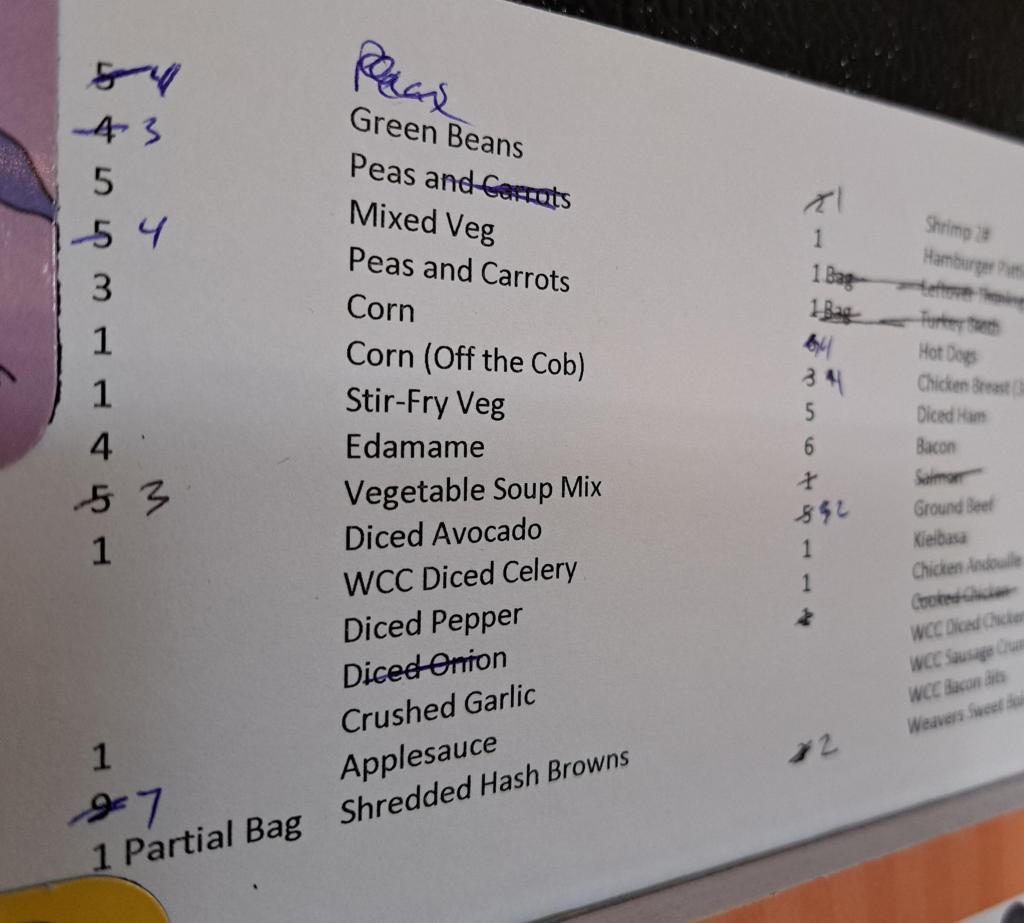In my house, “Do you have a plan for dinner?” is the dreaded question. If you have faced more than one evening drive home trying to remember what might be in the refrigerator and pantry at home to make a meal, you are not alone. Some days, it’s just all too much and requires a stop at the store on the way home or ordering take-out.

Believe it or not, planning meals or menus in advance really does not take a lot of extra time and can have HUGE benefits. It makes sense that planning our menus encourages cooking at home. Did you also know that menu planning is associated with consuming an overall healthier diet and less obesity? Menu planning can help save money as we use what is on hand and plan to use what is in season and on sale. It reduces stress by eliminating last minute decisions and rushing. Lastly, meal planning saves time by allowing us to prepare recipes or ingredients ahead as needed.
Let me share some examples:
- To have a clue of what is “on hand,” do an inventory of your freezer and pantry about twice a year. Post those inventories and edit as items are used.
- On weekends or whenever you have time, do what you can to get food prepped for meals and snacks during the week. Vegetables and fruits prepped and portioned. Eggs hard cooked, cheese cubed, etc.
- Use a magnetic weekly calendar (or just a notepad) to plan dinners. Take into consideration what you have on hand, weekly schedules, and any good weekly grocery deals. Knowing what is for dinner each night (at least the main dishes), allows you to plan and pull items from the freezer days in advance for adequate thawing.

If you are at a loss for where to start, keep it simple. Plan to include 3 food groups at each meal or 2 food groups at a snack (and make sure one of them is always a fruit or vegetable). You can also visit this Planning Meals resource from CDC. Our Extension colleagues from Texas A&M University have a great program called Dinner Tonight, providing recipes, cooking tips, and resources. If you love your slow cooker, our colleague Amanda Bohlen in Washington County shared 31 recipes during “Crock-tober-fest 2021”.
What makes planning meals easier for you? Please share your tips in the comments!
Written by: Kate Shumaker, Family and Consumer Sciences Educator, Ohio State University Extension, Holmes County
Reviewed by: Laura Halladay, Family and Consumer Sciences Educator, Ohio State University Extension, Greene County
References:
Ducrot, P., Méjean, C., Aroumougame, V. et al. Meal planning is associated with food variety, diet quality and body weight status in a large sample of French adults. Int J Behav Nutr Phys Act 14, 12 (2017). https://doi.org/10.1186/s12966-017-0461-7
Meal Prep guide. (2020, October 2). The Nutrition Source. https://www.hsph.harvard.edu/nutritionsource/meal-prep/
Ohio State University Extension (n.d.). Crock-Tober Fest 2021. https://washington.osu.edu/program-areas/family-and-consumer-sciences/crock-tober-fest-2021
Planning meals and snacks. (2023, August 16). Centers for Disease Control and Prevention. https://www.cdc.gov/healthyweight/healthy_eating/meals.html
Texas A&M University (n.d.). Dinner Tonight. https://dinnertonight.tamu.edu/






 difficult? I find that I sometimes struggle with the back-to-school schedule more than my two children (who are now a freshman and a sophomore in high school). Because of my struggles, I want to share some tips from
difficult? I find that I sometimes struggle with the back-to-school schedule more than my two children (who are now a freshman and a sophomore in high school). Because of my struggles, I want to share some tips from  be more efficient. But even the best
be more efficient. But even the best  elves more often for saying yes when we should have said no. Such a little word and yet so much power to free up the schedule. There is a great Live Smart Ohio blog for points to consider about
elves more often for saying yes when we should have said no. Such a little word and yet so much power to free up the schedule. There is a great Live Smart Ohio blog for points to consider about 


